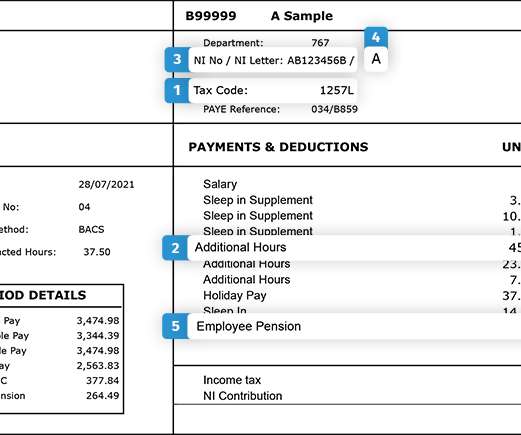Top 5 reasons to check your payslip
cipHR
NOVEMBER 15, 2021
As head of payroll bureau services at CIPHR’s sister company PBS , a payroll software and service provider, Jon and his team process payroll and BACS salary payments for 94,000 employees, across 500 organisations every month. CIPHR asked payroll expert Jon Lee for some pointers. Pension payments. Do I need to keep my payslips?












Let's personalize your content